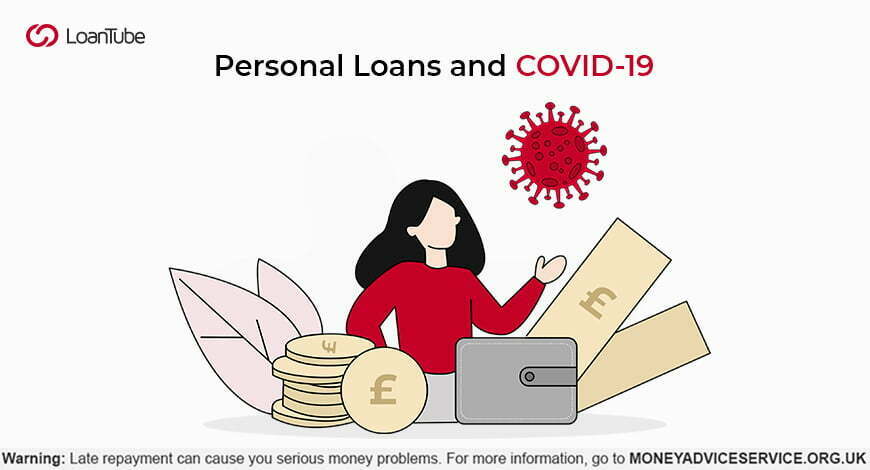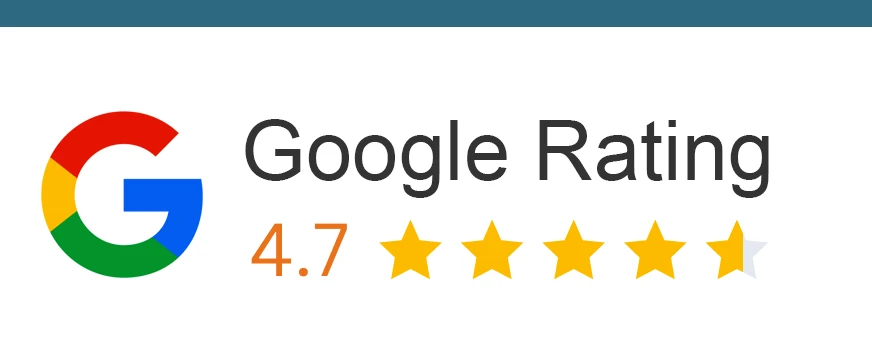When you borrow a personal loan to finance your venture, you don’t have to stress about repaying the lump sum in one go. You can spread the cost over a predetermined span, giving you ample time to stock up money for monthly instalments. The pandemic, however, has instilled apprehension in people about borrowing. Read this article to find out if borrowing a personal loan during COVID-19 is a smart move or not.
It’s been a year since the pandemic of 2020 locked us at home. Worse still, we’ve entered the third lockdown, facing the wrath of the virus. You don’t need to be a rocket scientist to anticipate a slow recovery from this economic meltdown.
Some of us were put on furloughs, while others lost their jobs altogether. The pandemic has been tormenting us both mentally and financially. Even if you planned on taking out a personal loan to cope with the downfall, the new, stringent lending criteria might give you a hard time. Keep your credit score up and assess your affordability before applying for a loan.
Staying indoors hasn’t been easy on any of us. Did you have to stall your home improvement venture? As per the consensus, over 80% of homeowners are planning to prioritize their home improvement projects to cope with the lockdown monotony. But you should adhere to the safety guidelines put out by the government.
Financing such a colossal venture out of your pocket may not be a wise financial move, especially during these unpredictable times. A personal loan can help you finance the project. But should you borrow money during this economic crisis?
In this article, we’ve shed some light on the pandemic’s impact on the lending market. Also, discover 5 questions that you should ask yourself before taking out a personal loan during COVID-19.
Maximise your options: Compare and apply for loans below with LoanTube
Apply Filters
Impact of COVID-19 on the lending market
The unpleasant encounter with COVID-19 has left the country in shackles. The economic downturn has left a profoundly negative impact on all the sectors. While the government urged financial institutions to free up more money for lending, lenders tightened their lending criteria to secure themselves against potential defaults.
Several UK adults have either lost their jobs or witnessed a wage cut. With this, lenders are continuously losing confidence in the borrowers concerning the loan’s repayment. Given that this industry survives off it’s the ability to predict the consumer’s credit behaviour, such unprecedented factors are leaving them unclear and perplexed. This is a significant driver for lenders that led to more restricted criteria.
5 questions to ask yourself before borrowing a personal loan during COVID-19
A personal loan could help you tide over the crisis. But in these circumstances where lender criteria are stricter than ever, and your income may not be steady, is it a good idea to opt for a personal loan? Let these five questions help you decide:
What are my odds of qualifying for a personal loan?
Several lenders raiser the bar for borrowers looking to borrow personal loans. The stringent criteria, with emphasis on credit score requirements, might give borrowers a tough time. While your credit score is not the only determining factor, it is a crucial one. So, avail a free credit report to check your credit score before applying for the loan.
Lenders will also factor in your debt-to-income ratio and income stability to assess your affordability. To qualify for competitive rates, your debt-to-income ratio, ideally, shouldn’t exceed 43% of your take-home income.
If you feel that your credit score and debt-to-income ratio will make it hard for you to get a loan, consider getting a co-signer. A guarantor or co-signer is a close friend or family member who partakes in a loan’s obligations with you. Now, if you were to default, the onus of repayments would fall on this guarantor. It may be worth considering a guarantor with good credit history and stable income.
Will a personal loan suit my needs?
To understand if a personal loan will suit your needs, identify the purpose you are looking to solve with it. For instance, you may use a personal loan for your home improvement venture. Home improvement projects can break the bank if you pay out of your pocket. A personal loan can help you spread the cost across a designated period, over fixed monthly instalments. Similarly, a personal loan to consolidate debts may help you lower your repayments to improve your overall financial wellbeing.
However, if you’re planning to use it regulate your household cash flow – utility bills, it could prove to be a more expensive option, owing to the interest. Furthermore, a default could be detrimental to your credit score. Instead of taking out a loan to cater to these bills, contact your service providers and seek some assistance.
Which personal loan is right for me?
Did you readily think that a loan with low-interest rates will be the ideal option? While this is not entirely incorrect, several other costs contribute to the actual cost – the APR. The APR or Annual Percentage Rate is the overall cost of your loan. APR includes all the overhead charges imposed by a lender – such as an arrangement fee, early repayment fee, etc. A loan with low-interest rates may have a high APR.
Now that you know about APRs compare your loans based on APRs to find your ideal loan offer.
Find a Loan That Suits Your Needs
How many personal loans can I have at once?
Sometimes, a single personal loan may not fetch you an adequate amount of funds. It may be because the lender you qualified for capped their maximum loan amount. Or, you somehow couldn’t qualify for a more significant loan amount. Such situations can force you to apply for a second personal loan.
Different lenders impose different restrictions on borrowers. While some lenders might reject your request outright, some may enforce conditions. An increase in your financial obligations is bound to increase your debt-to-income ratio. Moreover, multiple credit checks may harm your credit score, hampering your chances of securing credit.
It is imperative to assess your affordability before applying for multiple personal loans. If you default in them all, your credit score will gravely be affected. The lenders may even get a CCJ issued against you, jeopardizing your chances of getting a loan in the future.
Are there any alternatives?
The ideal way to go about this would be to reduce your expenses and save money. However, if you happen to be in the middle of a credit crunch, a 0% interest credit card may come in handy. Credit card providers provide the facility of 0% interest during the promotional period, usually 6 months. As long as you repay the balance within the promotional period, you won’t have to pay any interest. However, once this promotional period is over, the interest rates may shoot through the roof. So weigh the pros and cons before making the final call.
Conclusion
Personal loans are a powerful financial tool. The key to using this tool responsibly is paying off the loan in full and on time. Timely repayment is enough to keep financial stress away. Checking your affordability beforehand can help you rule out the possibility of a default. Additionally, shopping around for loans can help you find your ideal loan offer with low APRs and interest rates.
A personal loan is a commitment that requires your sincerity and discipline. Since this commitment can have long term implications on your credit profile, it is worth introspecting whether you’re ready for it or not.


